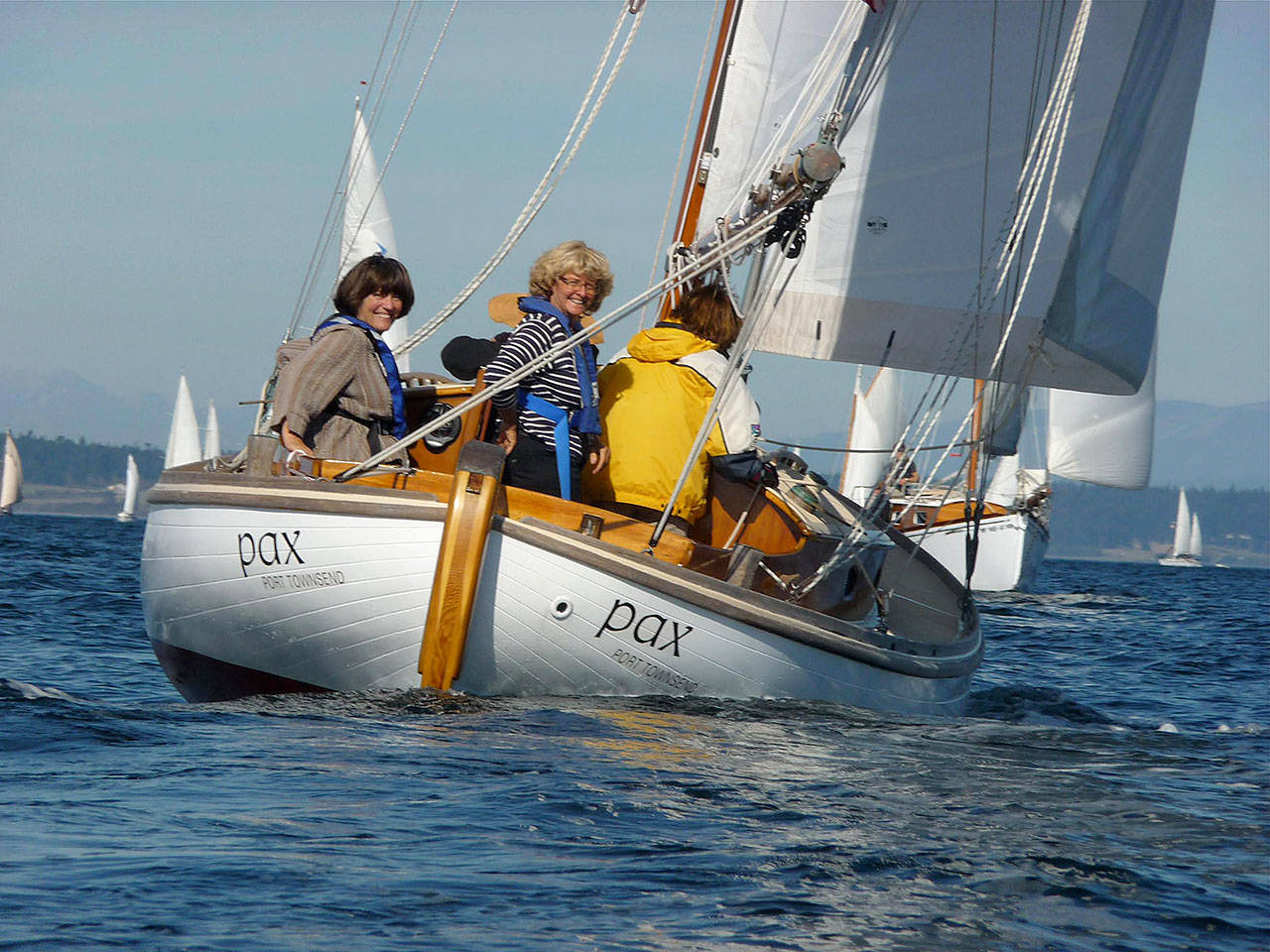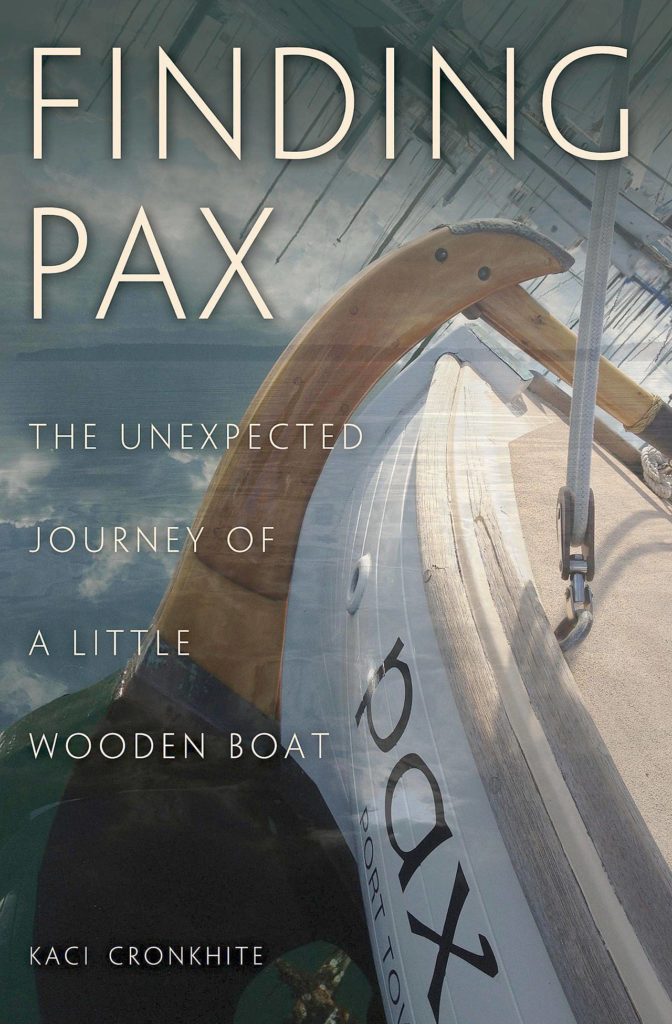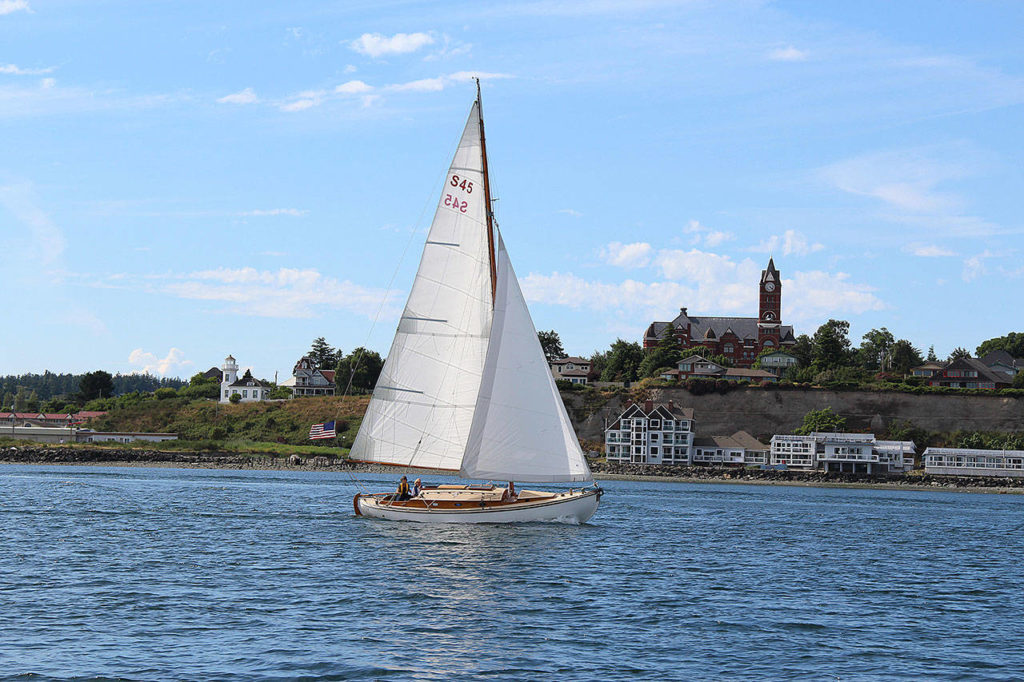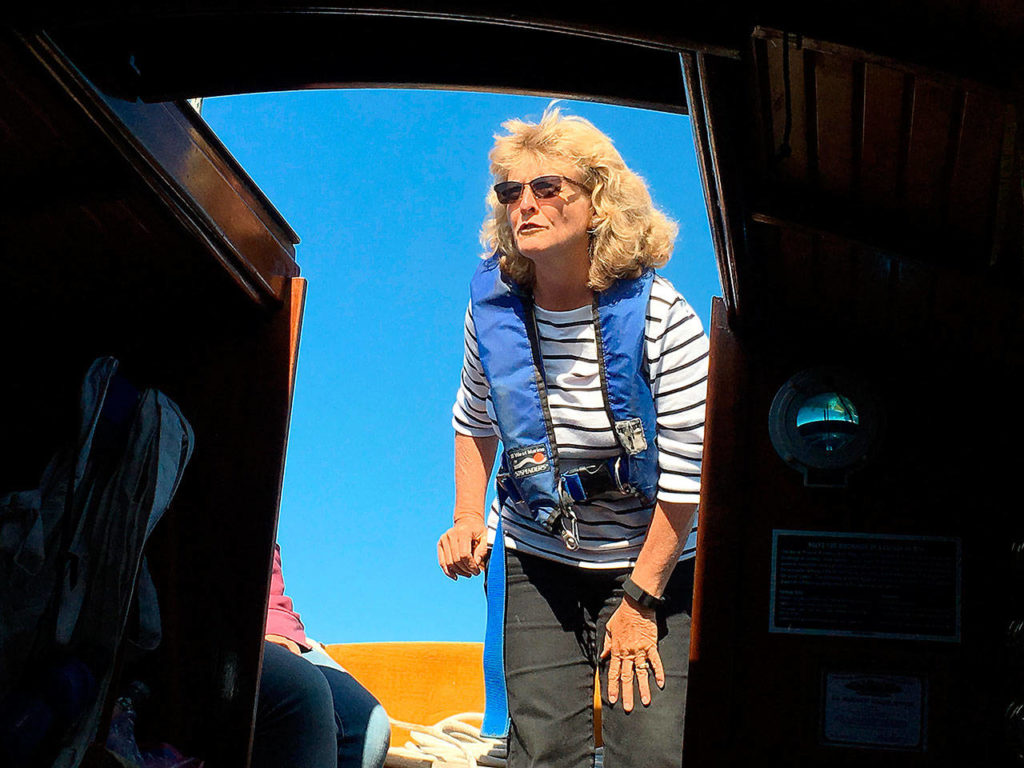Kaci Cronkhite grew up “at the bottom of the ocean, in the rattlesnake capital of the world.”
That’s her description of northwest Oklahoma where she roamed her grandparents’ cattle ranch, spending endless summer days on horseback following the sun.
Not the origin you’d expect for a woman who became an accomplished sailor, circumnavigator and director of the Port Townsend Wooden Boat Festival from 2002 to 2011. The annual event, one of the largest of its kind in the nation, features hundreds of boats, opportunities to sail, classes and activities for kids.
This year, Cronkhite, 55, won’t be the gale force behind the 41st festival, set for Sept. 8-10, but she’ll be featured as an author and speaker.
Cronkhite’s book about following her heart to pursue the story behind her “cute little double-ender” wooden sailboat named Pax changed her life course.
“Searching for the boat’s history allowed me to meet people from all over the world, and to learn about history and places at a deeper level than I ever imagined,” she said.
Cronkhite, who lives in Port Townsend, is updating the book and adding more photographs in anticipation of a second print run with a major publisher.
On Friday and Saturday at the Northwest Maritime Center, she’ll talk about the detective work behind her book and offer tips and answer questions about research, writing and publishing other boat stories.
Her book, “Finding Pax: The Unexpected Journey of a Little Wooden Boat” has captivated sailors and landlubbers alike. Reviews reference “its discovery of joy and hardship on every page,” and its ability to evoke laughter and tears.
The book is part adventure, part international mystery and all parts passion.
Built in 1936 in Kalundborg, Denmark, the spidsgatter came from the drawing board of the famed wooden boat designer M.S.J. Hansen. Fewer than 200 spidsgatters were built; Pax is one of only about a dozen in North America.
Spidsgatter is a design term chosen in Denmark to brand a new sailboat racing class in 1926. The word translates from Danish to English as “two pointy ends” or “two butts.”
Double-ender is its more poetic description.
Nearly 70 years old, Pax was definitely a fixer-upper when Cronkhite bought the sailboat in 2007.
But she was a beaut.
“She was voluptuous,” Cronkhite writes about first seeing the yacht. “Wide and full in volume, buxom fore and aft, she was all about the curves.”
Cronkhite knew lots about sailing but she’d never owned a boat.
From 1994 to 2001, she sailed more than 60,000 miles as hired crew on boats in oceans around the world. She earned a captain’s license and taught sailing and all aspects of ocean passage-making.
After attending the 2001 Port Townsend Wooden Boat Festival, Cronkhite was headed back out to sea the morning of 9/11. But like with so many people worldwide, the events of that day altered her plans.
The nonprofit festival was in need of a person with organizational skills and event planning and marketing know-how. Cronkhite specialized in all three.
She served as director of the Port Townsend Wooden Boat Festival and in executive roles for the Wooden Boat Foundation and Northwest Maritime Center.
“So I knew better than to buy a wooden boat,” she admitted. “I knew there was a ‘little problem,’ but I was in love.”
Wooden boats can be full of rotten news, Cronkhite soon found out.
“Behind every plank in a boat, you’re likely to find something else that might need to be fixed.”
A fleet of 30 marine trades craftspeople initially helped restore Pax to watertight status. And many more people helped keep Cronkhite from going off the deep end as repair bills mounted.
All the while, Cronkhite wondered about her Danish double-ender. Where had the wood come from to build her? Where had she sailed? What did she look like in her glory days?
Answers to those questions turned into a quest. One that took seven years.
“People ask what drove me to pursue the story. It’s the valuing of history and legacy and respect of things made by hand. I decided I was going to find out her history.”
The 28-foot wooden sailboat is out of the water now, undergoing major renovations.
Once a day during the festival, Cronkhite plans to meet interested people at Haven Boatworks so they can check out the boat’s “impressive” repairs.
“She has a new purple heart stern stem, two new grown oak floors, a new boom and more,” Cronkhite said.
Although her current itinerary may sound somewhat adrift — “writing and working wherever the wind blows” — she continues to receive invitations to speak about her boat and book from near and afar. Really far. As in Tasmania, Australia and New Zealand.
Cronkhite has two more nonfiction books in mind. One is called “When A Cowgirl Goes to Sea.”
Turns out being a cowgirl and a captain have similarities.
“The first time I stepped aboard a boat, I was 31,” she writes. “The rocking motion felt like a horse. It felt so natural.”
Port Townsend Boat Festival
The Northwest Maritime Center’s festival, regarded as the first, the largest and the most international wooden boat event in North America, is Sept. 8-10 and features more than 300 wooden boats of all kinds. The festival includes talks, demonstrations, on-the-water opportunities, races, exhibitors, live music and kids activities. Vendors will have food, beer and wine, as well as nautical-themed wares, arts and crafts. No dogs allowed.
Tickets are $20 for one day or $40 for all three days. Buy tickets at www.nwmaritime.org/wooden-boat-festival.
Author Kaci Cronkhite
Kaci Cronkhite is scheduled to speak on “Finding Pax and Writing About Boats” at 1:15 p.m. Sept. 8, and again at 10:45 a.m. Sept. 9 at the Northwest Maritime Center, 431 Water St., Port Townsend.
For more information, go to www.kacicronkhite.com.
Talk to us
> Give us your news tips.
> Send us a letter to the editor.
> More Herald contact information.





























